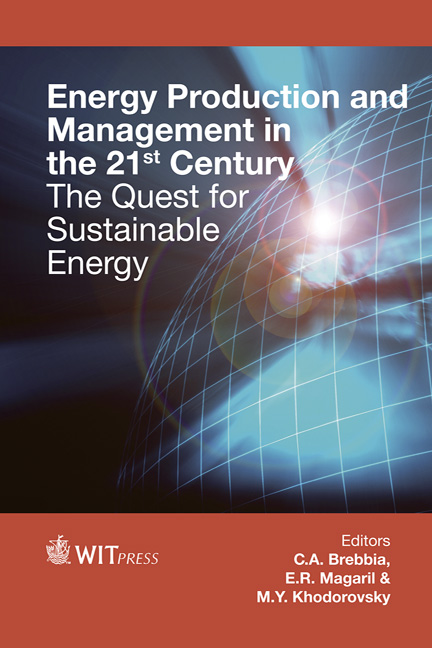Energy Efficiency By Thermal Spraying
Price
Free (open access)
Transaction
Volume
190
Pages
12
Page Range
455 - 466
Published
2014
Size
533 kb
Paper DOI
10.2495/EQ140441
Copyright
WIT Press
Author(s)
Yu. Korobov & M. Shalimov
Abstract
Machines used by the basic industries of Russia (metallurgy, oil-gas processing and power engineering) are characterized by high metal consumption, which in turn lead to high energy consumption. Their service lives increase and their worn parts are restored by means of low-cost materials for restoration. The processes of Thermal Spraying (TS) are more effective than alternative methods in restoration and increase in service life. Such methods include electroplating, chemical and thermal processing. The results of research and experience have proven this. At the same time, the load on the environment is reduced in comparison with the alternatives by decreasing emissions. Based on OEM publications and our own experience, we analysed the efficiency of TS processes. Plasma spraying was excluded from consideration since it has no real alternative for refractory oxide coatings which are mainly used for gas turbines and jet engines. By the criteria of the coating’s quality, performance and cost arc of spraying, flame spraying, HVOF/HVAF, cold spraying and detonation spraying were compared. Commonly used materials for TS, such as metals and carbides in metal bond (cermet), were examined as sprayed materials. This paper shows that a combination of activated arc spraying and HVAF for producing wear and corrosion-resistant coating is a rational variant with respect to a wide variety of parts for the aforementioned industries. Examples of resource-saving in metallurgy, oil–gas processing and power engineering are shown based on our own TS experience in material, equipment and technology development. Keywords: resource saving, thermal spraying, HVAF, HVOF, arc spraying, metallurgy, power engineering, service life increase.
Keywords
resource saving, thermal spraying, HVAF, HVOF, arc spraying, metallurgy, power engineering, service life increase.





